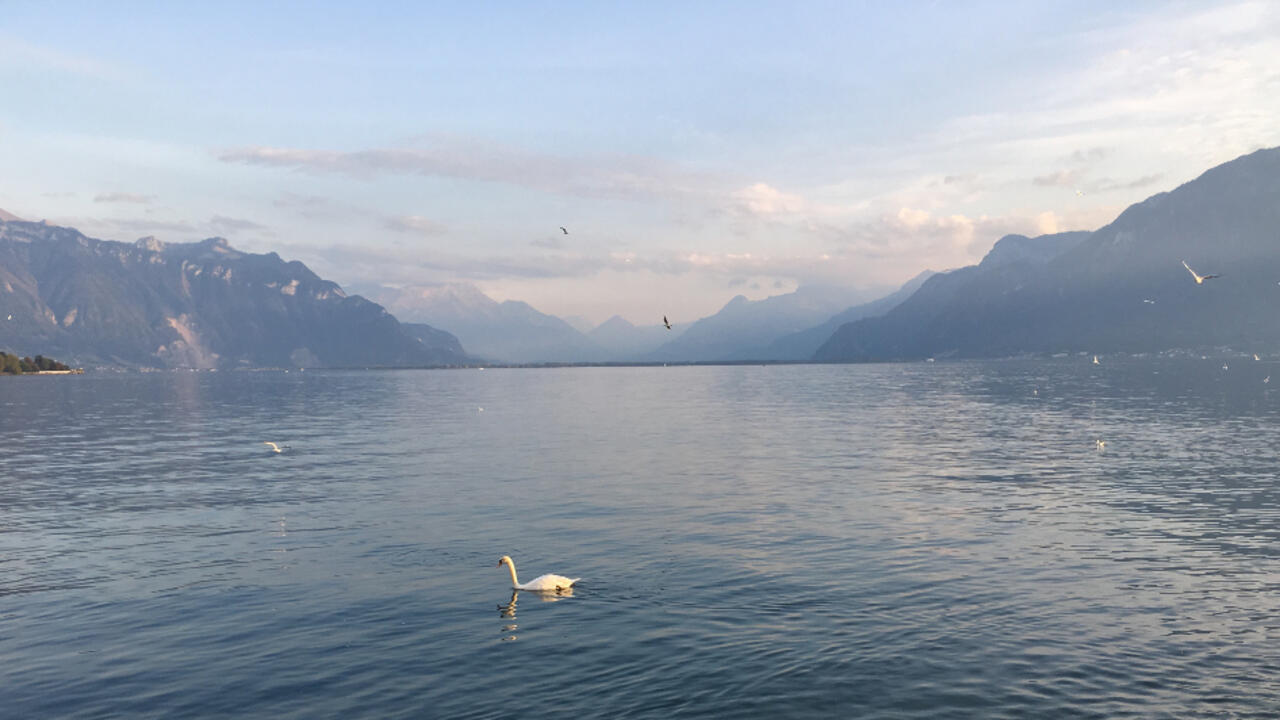Switzerland: the waters of Lake Geneva on the verge of asphyxiation, a threat to biodiversity
Due to global warming, Lake Geneva has not experienced complete mixing of its waters for ten years, even though the phenomenon is essential to allow oxygenation and therefore the conditions conducive to life.
RFI/Raphaelle Constant
Text by: RFI Follow
2 mins
Due to global warming, the largest lake in Europe has not experienced complete mixing of its waters for ten years.
The phenomenon is however essential to allow oxygenation and therefore, the conditions conducive to life.
Advertisement
Read more
With our correspondent in Geneva
,
Jérémie Lanche
Until now, the surface waters of Lake Geneva mixed with the deeper waters every five to six years in winter under the effect of cold and wind.
The proliferation of mild winters has prevented this natural phenomenon.
And therefore, all the waters between 130 meters and 309 meters deep stagnate.
Oxygen becomes rarer there and so does life.
"
There are no more larvae, worms or molluscs at the bottom of the lake,
" explains Frédéric Soulignac, researcher for the International Commission for the Protection of the Waters of Lake Geneva
.
It is feared that this oxygen deficit will also impact fish, in particular an emblematic species, the Arctic char, which needs cold temperatures.
And the coldest temperatures are at the bottom of the lake, where the water is deoxygenated.
»
►
To read also: IPCC report: to limit global warming, "it's now or never"
Risks for drinking water catchments
If oxygen is lacking at the bottom of the lake, phosphorus, brought by human activities such as agriculture, is far too present.
“
Phosphorus has been accumulating at the bottom of the lake for ten years due to the lack of complete mixing.
We think that during a next complete mixing, all this phosphorus will be made available on the surface of the lake and could cause a significant production of algae
”, specifies Frédéric Soulignac.
Algae that could allow bacteria to proliferate.
With risks not only for swimmers, but above all for the drinking water supply.
This concerns 900,000 people in France and Switzerland.
Already last fall, several drinking water catchments had to be stopped because of the proliferation of microalgae.
►
To read also: IPCC report: Europe must do better to limit global warming
Newsletter
Receive all the international news directly in your mailbox
I subscribe
Follow all the international news by downloading the RFI application
google-play-badge_FR
Swiss
Environment
Climate change

